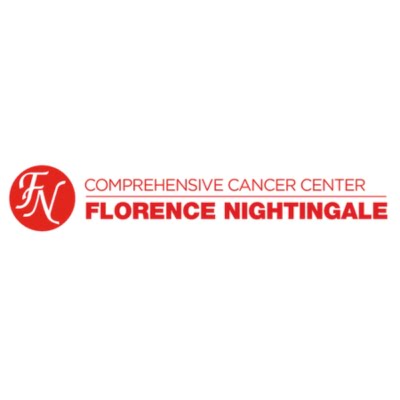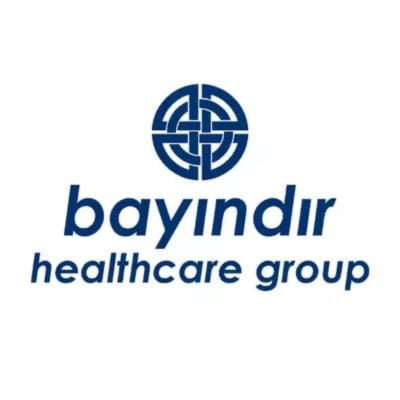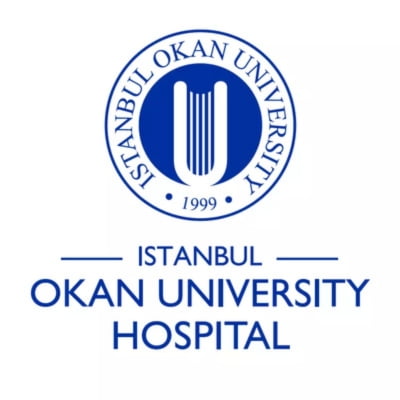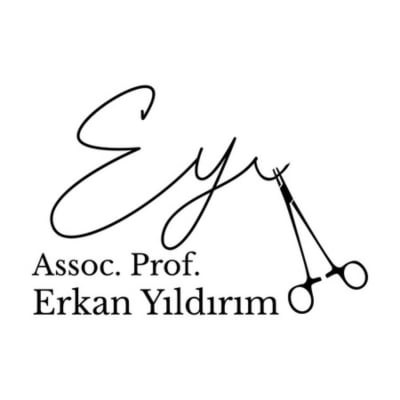Lung cancer is a serious health concern worldwide. It is one of the most common types of cancer and a leading cause of cancer-related deaths. Every year, many people are diagnosed with lung cancer, making it crucial to understand its prevalence and significance.
Choosing the right hospital and services for lung cancer treatment is incredibly important. The quality of care and available resources can significantly impact the outcome of treatment and the overall well-being of patients. Therefore, making informed decisions about where to receive treatment is vital.
Turkey’s healthcare system has made significant advancements in the treatment of lung cancer. With modern facilities, skilled medical professionals, and innovative treatment options, Turkey offers promising opportunities for individuals battling lung cancer. Understanding Turkey’s healthcare system and its offerings can provide valuable insights for those seeking effective treatment options.
Table of Contents
Understanding Lung Cancer Treatment
Lung cancer treatment involves various approaches aimed at fighting cancer cells and improving the patient’s quality of life. It’s essential to comprehend these treatments to make informed decisions about managing the disease effectively.
Types and Stages of Lung Cancer:
Lung cancer can be broadly categorized into two types: non-small cell lung cancer (NSCLC) and small cell lung cancer (SCLC).
Staging helps determine the extent of cancer spread, guiding treatment decisions. It typically ranges from stage I (localized cancer) to stage IV (advanced cancer).
Overview of Treatment Options:
- Surgery: Involves removing cancerous tumors and nearby lymph nodes. It’s often an option for early-stage lung cancer.
- Chemotherapy: Uses drugs to kill cancer cells or prevent their growth. It’s frequently used in combination with other treatments.
- Radiation Therapy: Employs high-energy rays to destroy cancer cells. It can be administered externally or internally (brachytherapy).
- Immunotherapy: Boosts the body’s immune system to recognize and attack cancer cells. It’s particularly effective in certain types of advanced lung cancer.
- Targeted Therapy: Targets specific molecules or pathways involved in cancer growth, minimizing damage to healthy cells.
Why Choose Turkey For Lung Cancer Treatment?
Turkey has emerged as a prominent destination for lung cancer treatment, offering several compelling reasons for patients to consider:
Advanced Medical Facilities: Turkey boasts modern hospitals and medical facilities equipped with state-of-the-art technology for diagnosing and treating lung cancer. These facilities adhere to international standards and provide cutting-edge treatment options.
Experienced Medical Professionals: Turkish healthcare professionals are highly skilled and experienced in the diagnosis and treatment of lung cancer. They undergo rigorous training and often collaborate with international experts, ensuring the delivery of high-quality care.
Cost-Effective Treatment: Compared to many Western countries, the cost of lung cancer treatment in Turkey is relatively lower. Patients can access world-class medical care at a fraction of the cost, making it a cost-effective option, especially for those without comprehensive insurance coverage.
Multidisciplinary Approach: Turkish hospitals adopt a multidisciplinary approach to lung cancer treatment, involving a team of specialists from various fields such as oncology, surgery, radiology, and pathology. This comprehensive approach ensures that patients receive personalized and holistic care tailored to their specific needs.
Innovative Treatment Options: Turkey is at the forefront of medical innovation, offering innovative treatment options for lung cancer, including targeted therapy, immunotherapy, and minimally invasive surgical techniques. Patients have access to the latest advancements in cancer treatment, improving their chances of successful outcomes.
Cultural Hospitality: Turkey is renowned for its warm hospitality and cultural diversity, providing patients with a comfortable and welcoming environment during their treatment journey. Patients and their families can explore the rich cultural heritage and attractions of Turkey while receiving medical care.
Ease of Access: Turkey is geographically well-positioned and easily accessible from Europe, Asia, and the Middle East. It has excellent transportation infrastructure, including international airports and medical tourism facilities, making it convenient for patients traveling from abroad.
Best Cancer Hospitals in Turkey
Here are some of the best cancer hospitals in Turkey:
Florence Comprehensive Cancer Center in Istanbul, Turkey
Renowned for its comprehensive approach to cancer care, offering a wide range of advanced treatments and personalized care plans.
Equipped with state-of-the-art technology and a team of experienced oncologists and medical professionals.
Provides holistic support services for patients and their families, including counseling, rehabilitation, and palliative care.

Bayındır Healthcare Group in Ankara, Turkey
A leading healthcare provider in Turkey, offering specialized cancer treatment services across its network of hospitals.
Known for its multidisciplinary approach to cancer care, involving experts from various fields to ensure comprehensive treatment plans.
Offers innovative treatment options and access to clinical trials, ensuring patients have access to the latest advancements in cancer treatment.

Istanbul Okan University Hospital in Istanbul, Turkey
Recognized for its advanced cancer care services and commitment to research and education in oncology.
Houses specialized oncology departments equipped with modern technology for diagnosis, treatment, and follow-up care.
Collaborates with international institutions and participates in collaborative research initiatives, enhancing its expertise and treatment options.

Bellaten Health Ltd Co in Istanbul, Turkey
Known for its patient-centered approach to cancer care, prioritizing individualized treatment plans and compassionate support.
Offers a wide range of cancer treatment modalities, including surgery, chemotherapy, radiation therapy, and targeted therapy.
Focuses on continuous improvement and quality assurance to ensure the highest standards of care for cancer patients.

Criteria for Choosing the Best Hospitals and Services
When selecting the best hospitals and services for lung cancer treatment, several key criteria should be considered:
- Accreditation and Certifications: Look for hospitals that are accredited by reputable organizations and have certifications indicating adherence to high standards of quality and safety in cancer care. Accreditation ensures that the hospital meets rigorous criteria for patient care, facilities, and staff qualifications.
- Expertise of Medical Professionals: Choose hospitals with a team of experienced oncologists, surgeons, radiologists, and other specialists who specialize in lung cancer treatment. Ensure that the medical professionals have a track record of successful outcomes and are up-to-date with the latest advancements in lung cancer care.
- Advanced Technology and Treatment Options: Opt for hospitals equipped with state-of-the-art technology and facilities for diagnosing and treating lung cancer. This includes advanced imaging techniques, radiation therapy equipment, surgical tools, and access to innovative treatment modalities such as immunotherapy and targeted therapy.
- Multidisciplinary Approach: Seek hospitals that adopt a multidisciplinary approach to lung cancer treatment, involving collaboration among various specialists to develop comprehensive treatment plans tailored to individual patient needs. A multidisciplinary team ensures that all aspects of the patient’s care are addressed, from diagnosis to treatment and follow-up care.
- Range of Supportive Services: Consider hospitals that offer a range of supportive services to help patients cope with the physical, emotional, and practical challenges of lung cancer treatment. This may include psychosocial support, nutritional counseling, pain management, palliative care, and survivorship programs.
- Patient-Centered Care: Look for hospitals that prioritize patient-centered care, focusing on the needs, preferences, and values of patients and their families. A patient-centered approach ensures that patients are actively involved in decision-making and receive compassionate, personalized care throughout their treatment journey.
- Quality and Outcomes: Evaluate hospitals based on their quality metrics and outcomes data related to lung cancer treatment. Consider factors such as survival rates, complication rates, patient satisfaction scores, and accreditation status to assess the hospital’s performance and reputation in lung cancer care.
How much does it cost to treat lung cancer in Turkey?
The cost of treating lung cancer in Turkey can vary widely depending on several factors, including the type and stage of lung cancer, the specific treatment modalities required, the duration of treatment, and the individual patient’s medical needs. Additionally, the choice of hospital or healthcare provider may also influence the overall cost.
While it’s challenging to provide an exact figure due to these variables, the estimated range provided, which is between $3,000 to $18,000, offers a general idea of the potential costs involved in lung cancer treatment in Turkey. However, it’s essential to note that this range is just an estimate and actual costs may vary.
Patients should consult with healthcare providers and hospitals to obtain detailed cost estimates tailored to their specific treatment plan and financial situation. It’s also advisable to inquire about insurance coverage, financial assistance programs, and payment options to help manage the cost of treatment effectively.
Procedure of Lung Cancer Treatment in Turkey
The procedure of lung cancer treatment in Turkey typically involves the following steps:
Diagnosis: The process begins with a thorough medical evaluation, including physical examination, imaging tests (such as X-rays, CT scans, or MRIs), and biopsy to confirm the diagnosis of lung cancer and determine its stage.
Treatment Planning: Once the diagnosis is confirmed, a multidisciplinary team of healthcare professionals, including oncologists, surgeons, and radiation oncologists, develops a personalized treatment plan tailored to the patient’s specific condition and needs.
Treatment Modalities: Depending on the type and stage of lung cancer, treatment modalities may include surgery to remove cancerous tumors, chemotherapy to kill cancer cells, radiation therapy to destroy cancer cells with high-energy radiation, immunotherapy to boost the body’s immune system, targeted therapy to target specific molecules involved in cancer growth, or a combination of these treatments.
Treatment Administration: Patients undergo treatment as outlined in their personalized treatment plan. This may involve hospitalization for surgery or chemotherapy sessions, outpatient visits for radiation therapy or immunotherapy, or a combination of inpatient and outpatient care as needed.
Monitoring and Follow-Up: After completing the initial treatment, patients undergo regular monitoring and follow-up care to assess treatment response, manage side effects, and detect any signs of recurrence or progression. Follow-up care typically includes periodic imaging tests, physical examinations, and consultations with healthcare providers.
Supportive Care: Throughout the treatment process, patients receive supportive care services to address their physical, emotional, and practical needs. This may include pain management, nutritional support, counseling, rehabilitation, palliative care, and access to support groups or community resources.
Survivorship Care: For patients who have completed treatment and are in remission or have stable disease, survivorship care focuses on maintaining overall health and well-being, managing long-term side effects of treatment, and providing support for transitioning back to normal life.
Ready to take the next step in your lung cancer treatment journey? Contact us today to schedule a consultation with our experienced healthcare team in Turkey. Your personalized care plan awaits. Take control of your health and start your path to recovery now.







